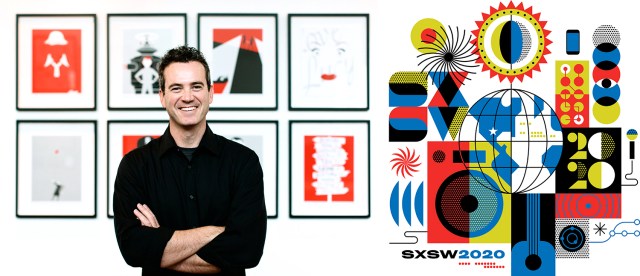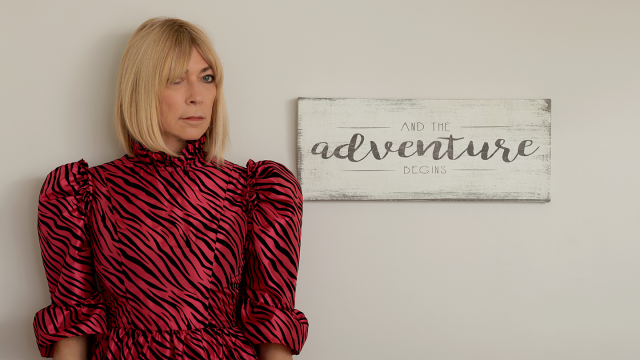There’s a duality inherent in Ta-Nehisi Coates’s career. He’s a journalist, but rather than seek out a pretense of objectivity, his most famous work has been his deeply personal, passionate arguments on issues surrounding race in America. He is perhaps the leading public intellectual in the country, but he splits his time writing a monthly Marvel superhero comic. And while he is on the verge of accomplishing everything any writer could want in their career — publishing books of essays, writing fiction and Black Panther comics, being attached to television projects with The Wire’s David Simon and film projects with Creed and Black Panther director Ryan Coogler — he’s not sure he’s ready for it all.
“You have to be very careful, and make sure that you’re interrogating yourself over why you’re doing what, because you better not take all of them,” Coates says. “It’s important to not take things just because they’re being offered.”
“For me, being good is extremely important, and the way you get good is to focus on a particular thing...”
Coates started his career with the Washington City Paper, then continued freelancing with Time, Village Voice, and Philadelphia Weekly. He began writing for The Atlantic in 2008, and found a home there as a blogger and senior editor. His work there has continually been challenging, thoughtful, progressive stuff that deals with race.
He had a cover story in 2012 on the thorny issue of how President Obama addressed, or didn’t address, the issue of race, and unleashed a blockbuster in 2014 with “The Case for Reparations,” which argued persuasively that the country had failed to honor its promises to black Americans since the abolition of slavery and owed a larger form of correction than just promises. The following year, he published the National Book Award-winning Between the World and Me, a 176-page letter to his teenage son about the role race played in his own life, and the role it tends to play in others.
He followed that by winning a MacArthur Genius grant, and then, at the height of his intellectual and academic fame, pursued his lifelong enjoyment of superhero comics by accepting an offer to write Marvel’s Black Panther. It was an opportunity that came with unique challenges beyond just “what if this interferes with my reputation as an intellectual.” Namely, comics are a different medium than journalism and essays, and one that he was going to be learning in public.
“You have to go from being a fan to an actual creator,” Coates says of the comic-writing learning curve. “You have to understand why things work — and they’re not the obvious reasons. There’s a lot of time spent going from the initial impulse of ‘I like this’ to ‘Why did I like it?’ and ‘Why did it make me feel this way?’ ”
Coates acknowledges that he is still figuring all of that out, and he name-drops some of the industry’s biggest figures —, Ed Brubaker, Kelly Sue DeConnick, and Matt Fraction — who have helped him talk through craft as he gets into the nuts-and-bolts of issues like caption placement. And because he is still very much in the process of figuring all of that out as a comic book writer, he is hesitant to get too far into the other opportunities, like film and television. Right now, he is still not sure that he is ready for them.“For me, being good is extremely important, and the way you get good is to focus on a particular thing,” Coates says. “If you’re sensing any hesitancy in me, it’s because one could very easily spread themselves across several platforms and be mediocre at it. And it’s okay to be mediocre while you’re learning, but — there’s a lot of TV out there. There’s a lot of great TV. So unless you’re going to be a part of a show that you’re going to make great, why do it?”
Questions like that occupy a lot of Coates’ waking life. His work schedule is busy — he’ll put in long hours, and admits that, outside of work and family, he hasn’t got much of a social life — and he’s focused on making sure that the things that go out under his name are projects that he’s proud of.
“I just turned in a book of fiction to my editor, and I told him before we even turned it in, back when we got the contract signed — ‘You can’t let me embarrass myself,’ ” he recalls.
At the same time, all of those opportunities are enticing — an author’s money, fame, and influence are greater than a journalist’s, and the platform of Hollywood is potentially bigger than either. So is it hard for Coates to temper his ambitions in a way that ensures he only pursues the opportunities he is comfortable taking on?
“Nah, it’s not hard,” he explains. “There is a long record of people in my business — journalists, or academics, or intellectuals — and when they try to go and do something else, even if it makes money, they are clearly not operating at the same level. And it’s one thing to not operate at that level while you’re learning. As a comic book writer, I’m definitely not operating at the same level that I do as a non-fiction journalist. But I hope I’m getting better.”
Ta-Nehisi Coates was a Convergence Keynote Speaker at SXSW 2018. Watch the entire Keynote below.



